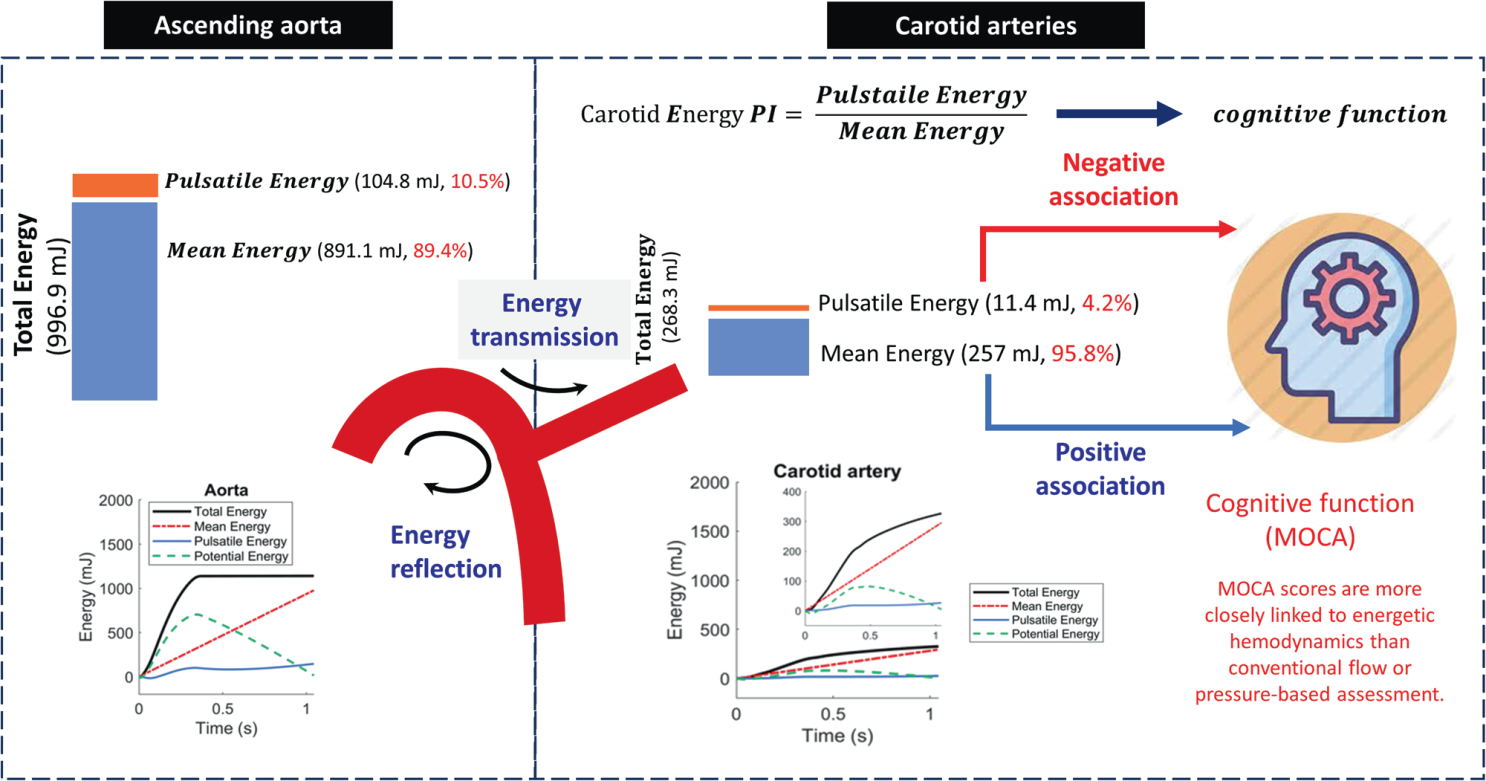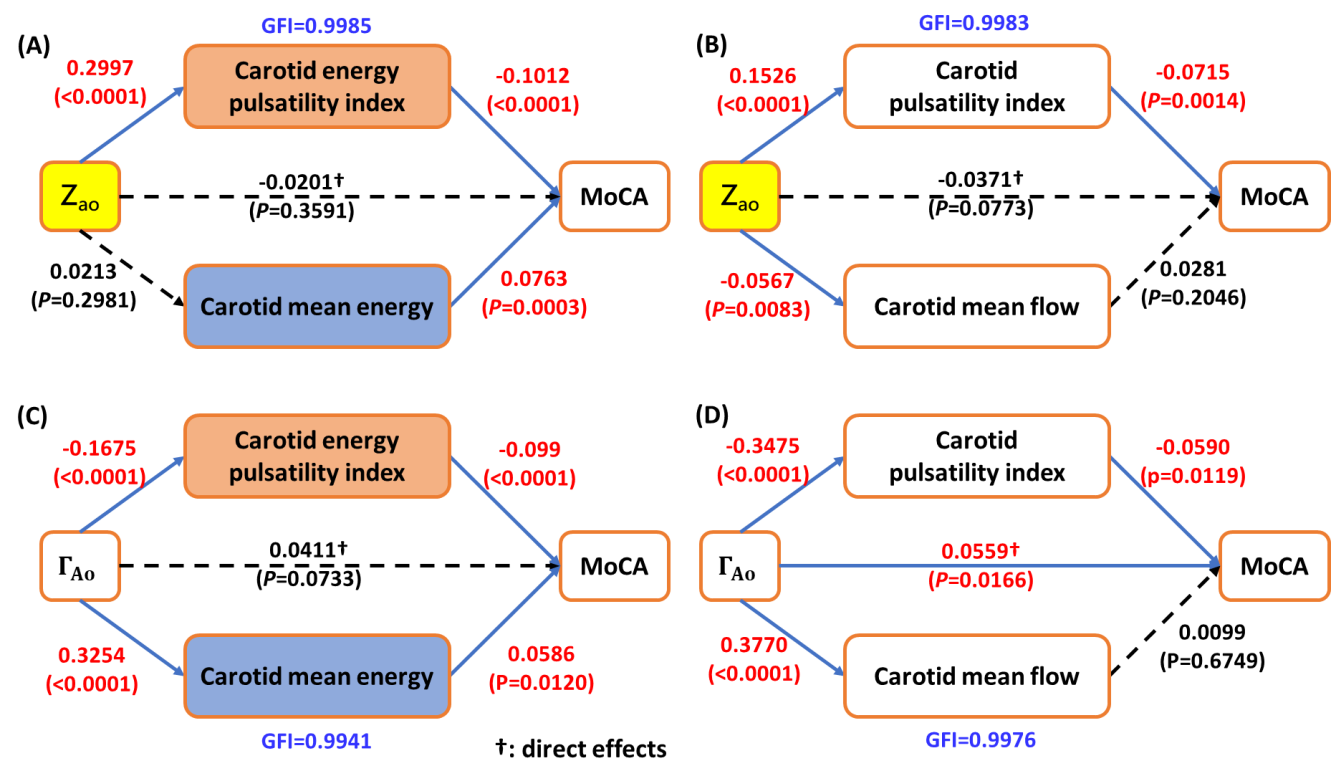Featured Scientist
Jiun-Jr Wang, Ph.D.
Associate Professor
Dissecting the Vascular-Cognitive Nexus: Energetic vs. Conventional Hemodynamic Parameters
Our research demonstrates a robust association between energetic hemodynamic parameters and cognitive function. There exists a strong association between the presence of an increased carotid energy PI, which is characterized by heightened carotid pulsatile energy and decreased carotid mean energy, and impaired cognitive performance, as assessed by the MoCA. Our study provides substantial evidence to support the notion that carotid energy PI and carotid mean energy are more dependable indicators of cognitive decline compared to conventional hemodynamic parameters that rely on flow or pressure measurements. This discovery affirms the enhanced explanatory potential of energetic hemodynamic parameters in the association between vascular health and cognitive function. Future emphasis may not be on arterial pressure or blood flow, but rather on energy, which may become the standard unit of measurement. The carotid energy PI could be a promising therapeutic target because of its significant correlation with cognitive function. To potentially slow down the progression of vascular dementia, it is recommended to lower carotid energy PI by reducing carotid pulsatile energy, increasing aortic compliance, and decreasing carotid/cerebral resistance.
Keywords:Carotid pulsatile energy, High blood pressure, Flow pulsatility index, Pressure pulsatility index, Cognitive Function
3 views
